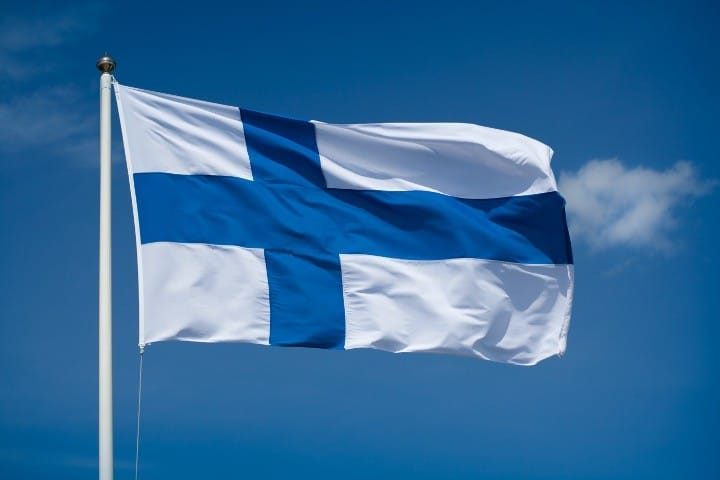
SINGAPORE — The majority of members of Finland’s Parliament have authorized legislation permitting the country to join NATO, raising the chances of it becoming a member of the defense alliance without its Nordic neighbor Sweden.
Both Finland and Sweden axed years of military nonalignment in a landmark policy shift catalyzed by the onset of the Ukraine crisis, submitting NATO membership applications “hand-in-hand.”
Nonetheless, their applications must be authorized by all 30 existing members. Approval from Hungary and Turkey is still pending, and Ankara is protesting Sweden’s NATO entry, accusing Stockholm of hosting what it deems to be members of terrorist groups.
Finnish MPs voted 184 for the NATO treaties, with seven against and one abstaining, after earlier pushing for the legislation to be passed before the general elections planned for early next month.
Parliamentary approval does not guarantee Finland’s automatic NATO membership once Turkey and Hungary approve its entry, however. Instead, the bill must be signed into law by the president within three months, setting a deadline on how long it can wait for Sweden.
Finland’s president, Sauli Niinistö, told reporters last week he intended to sign the law “as soon as it is approved by parliament,” but elaborated that if there were “practical reasons,” he would wait.
In nearby Hungary, Prime Minister Viktor Orbán remarked that more talks were vital before MPs vote on the membership bids, and blamed Sweden and Finland for spreading “outright lies” about the state of democracy and the rule of law in Hungary. A delegation from Hungary’s Parliament is poised to visit Finland on March 9 to discuss its NATO membership application, the Finnish foreign minister, Pekka Haavisto, declared.
The foreign affairs secretary, Péter Sztáray, echoed Hungary’s president, Katalin Novák, in urging MPs to back Finland’s and Sweden’s entry “as soon as possible.”
Hungarian lawmakers on March 1 began debating the NATO bids of both countries, with the ruling party expressing worries ahead of a vote expected this month. During the opening remarks, opposition MP Agnes Vadai accused Orbán’s ruling party Fidesz of procrastinating over the vote as a way to delay the ratification. Together with its Christian democratic partner KDNP, Fidesz retains a two-thirds majority in Parliament.
The parliamentary voting was officially scheduled for March 6-9, but the Parliament’s website revealed that the vote would not take place until at least March 20, and the government stated that it might postpone the ratification voting until the second half of the month.
A meeting between Hungarian and Swedish parliamentary delegations to “clarify (Hungarian) MPs’ concerns about the ratification of NATO accession” is due to be held in the coming weeks, Hungarian Foreign Minister Peter Szijjarto stated. However, “MPs aren’t very enthusiastic,” Orbán said, airing his concerns during a radio interview last week.
Some lawmakers fear the direct border between Russia and Finland of over 1,000 kilometers could be a “great potential for war,” the prime minister said. Orbán, a close ally of Turkish President Recep Tayyip Erdogan, has been keen to maintain relations with Moscow. While he has criticized Russian actions in Ukraine, he has refrained from slamming Russian President Vladimir Putin by name.
Turkish Foreign Minister Mevlut Cavusoglu said recently that talks with Sweden and Finland about their NATO membership bids will resume on March 9. The talks were delayed amid a Quran-burning demonstration in January outside the Turkish embassy in Stockholm.
Speaking in Ankara, Cavusoglu said the meeting will happen in Brussels, and talks are set to focus on the enforcement of the memorandum signed between the countries.
As Erdogan is preparing for an upcoming presidential election in which he is trying to gain support among his nationalist electoral base, he has delayed approving Sweden’s entry into NATO.
Previous discussions centered on a particular list of Turkish demands, including the expulsion of dozens of what Ankara claims are Kurdish terror suspects. “It’s not possible for us to give consent (to a NATO bid) before Sweden fulfills its commitments” under a protocol signed in Madrid in June, Cavusoglu said.
Yet Cavusoglu clarified that Turkey looked warmly on Finland’s bid. “We may separate Sweden and Finland’s membership process,” he said.
Finland’s Niinisto said that the Finnish Parliament’s moves to advance the country’s NATO bid should not be seen as Finland leaving Sweden behind. “To the extent it is up to us, we will go hand-in-hand, but Turkey has the ratification in its own hands and we can’t do anything about that,” the president said. “If Turkey and Hungary ratify, and our Parliament accepts the legislation, we will become members.”
Meanwhile, work on a planned 200-km fence began along parts of Finland’s 1,340-km (830-mile) border with Russia, as Helsinki fears Moscow could leverage on migrant flows at the frontier for political purposes.
Terrain work was slated to begin on March 1 “with forest clearance and will proceed in such a way that road construction and fence installation can be started in March,” the Finnish Border Guard said in a statement.
The 3-km pilot project at the southeastern border crossing in Imatra is poised to be completed by the end of June, the statement read, and construction of an additional 70 km, mainly in southeastern Finland, will happen between 2023 and 2025. In total, Finland hopes to fence 200 km of its 1,300-km border with Russia, at a cost of around €380 million.
The fence will be over three meters tall with barbed wire at the top, with sensitive areas bedecked with night vision cameras, lights, and loudspeakers. At the moment, Finland’s borders are shielded mainly by light wooden fences that were installed to prevent livestock from going across the border.
Although the Finland-Russia border has “worked well” in the past, Brigadier-General Jari Tolppanen told AFP in November last year that the Ukraine conflict had altered the security situation “fundamentally” and that the border fence was “indispensable” to preventing large-scale illegal entrants from Russian territory.
Finland saw an influx of Russians in September last year after Russian Putin commanded reservists to fight in the conflict in Ukraine.



